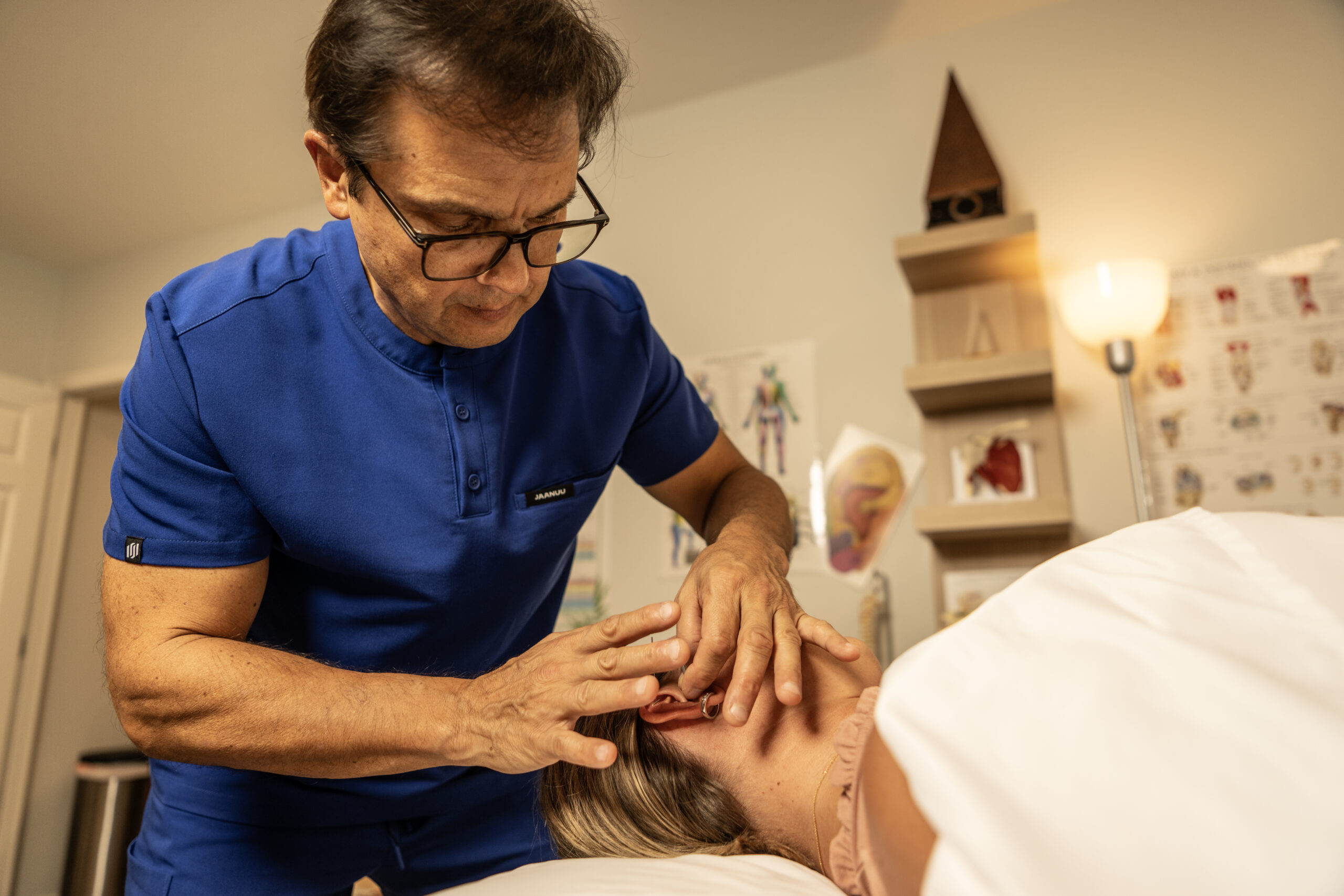
05 Apr Exploring Neuroacupuncture for Parkinson’s Disease: A Friendly and Informative Guide
Parkinson’s disease (PD) affects millions globally, presenting a challenging puzzle for both patients and healthcare providers. Despite advancements in conventional treatments, managing PD’s complex symptoms remains a significant hurdle. Enter neuroacupuncture—an innovative blend of ancient acupuncture techniques and modern neuroscience. This approach offers a fresh perspective on addressing the underlying neurochemical imbalances and neurological dysfunctions associated with Parkinson’s disease.
In this friendly guide, we’ll explore how neuroacupuncture works, its benefits for Parkinson’s patients, and what the latest research says.
What is Neuroacupuncture?
Neuroacupuncture is a specialized form of acupuncture that merges traditional techniques with contemporary insights from neuroscience. Unlike standard acupuncture, which focuses on restoring the flow of Qi (vital energy) along meridians, neuroacupuncture targets specific neurological conditions. It involves stimulating key points on the body, including the scalp, ears, and extremities, to address neurological issues directly.
By using fine needles strategically, neuroacupuncture aims to:
- Regulate neurotransmitter activity
- Balance neural circuits
- Enhance neuroplasticity—the brain’s ability to adapt and rewire itself (Zhang et al., 2014)
How Can Neuroacupuncture Help with Parkinson’s Disease?
- Regulating Neurotransmitters: Parkinson’s disease often involves a shortage of dopamine, a neurotransmitter crucial for motor control. Neuroacupuncture can boost dopamine levels in the brain, helping to alleviate symptoms like tremors, rigidity, and bradykinesia (Cho et al., 2010).
- Modulating Neural Circuits: This therapy targets specific brain regions related to Parkinson’s, such as the basal ganglia. By influencing these neural circuits, neuroacupuncture helps balance excitatory and inhibitory signals, which can improve motor control and coordination (Lee et al., 2009).
- Promoting Neuroplasticity: Neuroacupuncture stimulates brain areas involved in neuron generation and repair. This encourages the formation of new neural connections and the reorganization of existing ones, potentially aiding motor recovery and functional improvement (Wang et al., 2014).
- Reducing Oxidative Stress and Inflammation: Parkinson’s disease is linked with oxidative stress and inflammation, which can worsen neuronal damage. Neuroacupuncture helps counteract these effects by providing antioxidant and anti-inflammatory benefits (Zhang et al., 2014).
- Improving Non-Motor Symptoms: PD often involves non-motor symptoms like depression, anxiety, and sleep disturbances. Neuroacupuncture can help manage these issues by balancing the autonomic nervous system and improving neurotransmitter levels (Wang et al., 2014).
Supported by Science: What the Research Shows
A growing body of clinical research highlights the benefits of neuroacupuncture for Parkinson’s disease. For example, a study published in the Journal of Neurology found that neuroacupuncture combined with conventional medication significantly improved motor function and daily living activities in PD patients (Cho et al., 2010).
Another meta-analysis in the Journal of Alternative and Complementary Medicine reported that acupuncture, including neuroacupuncture, led to notable improvements in motor symptoms, quality of life, and disability scores for PD patients (Lee et al., 2009).
Neuroimaging studies further reveal that neuroacupuncture influences brain activity in regions critical to motor function, contributing to its therapeutic effects (Zhang et al., 2014).
Conclusion: A Promising Adjunct Therapy
Neuroacupuncture stands out as a promising adjunctive therapy for managing Parkinson’s disease. By addressing both motor and non-motor symptoms, it supports overall well-being and enhances quality of life. This innovative approach leverages ancient wisdom and modern science to tackle the complex challenges of Parkinson’s disease.
If you’re considering neuroacupuncture as part of your Parkinson’s disease management plan, my practice specializes in this approach and has seen positive results in many patients. For personalized advice and to explore how neuroacupuncture can benefit you, feel free to reach out at (239) 322-3817.
References
- Cho, S. Y., et al. (2010). Efficacy of acupuncture in patients with Parkinson’s disease: A randomized controlled trial. Journal of Neurology, 257(4), 558-565. Link
- Lee, M. S., et al. (2009). Acupuncture for Parkinson’s disease: A systematic review and meta-analysis of randomized controlled trials. Journal of Alternative and Complementary Medicine, 15(5), 547-554. Link
- Wang, X., et al. (2014). Modulatory effects of acupuncture on brain networks in mild cognitive impairment patients. Neural Regeneration Research, 9(11), 1163-1169. Link
- Zhang, Y., et al. (2014). Acupuncture modulates the functional connectivity of the default mode network in stroke patients. Evidence-Based Complementary and Alternative Medicine, 2014, 765413. Link


